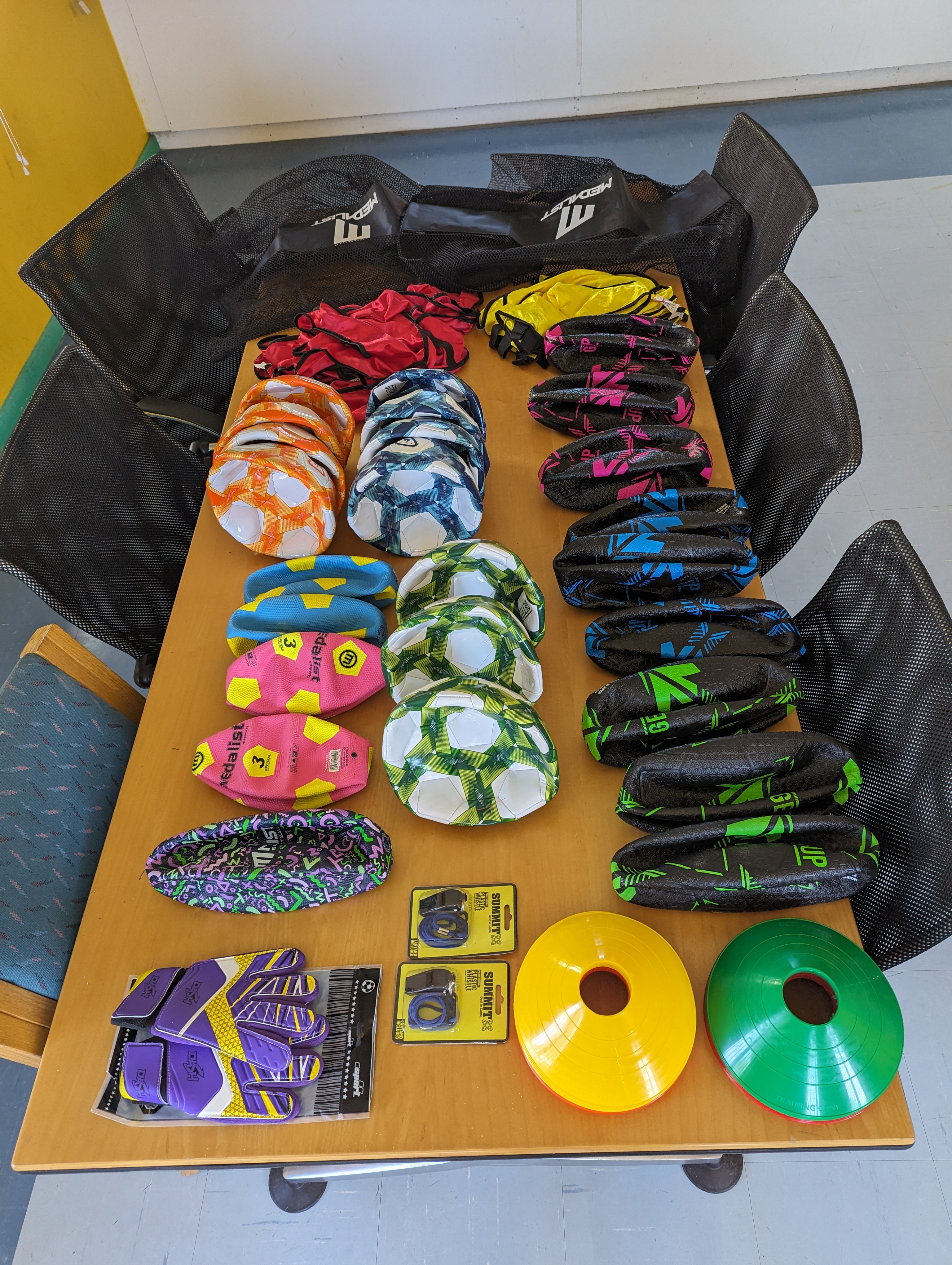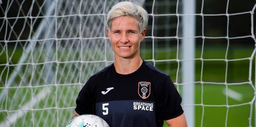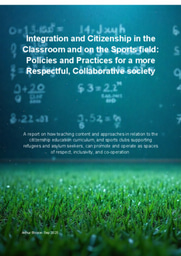LiA Weekly Log: Week 2

During my second week of volunteering, I witnessed some potential positive impact of the children and I's work together. This NGO houses orphaned, abandoned, and precariously housed youth, and I am excited to see what the next weeks have in store.
What went well?
The progress I made; what was achieved and done
As a recap, my work here involves three main programs that I am leading: 1) a comedy-based psychosocial intervention for teenagers, 2) a comedy-based psychosocial intervention for preschoolers, 3) a soccer-based psychosocial intervention for school-aged and teenage girls, and 4) skill sharing sessions with the staff at the centre. As described below, there has been exciting progress in all four areas:
Comedy-based psychosocial intervention for teenagers
- We started doing comedic improvisation exercises that involved an audience.
- The 2-3 teens who were too anxious to participate in these exercises at the beginning of the week were able to do so by mid-week.
- Giving space for people to share their experiences of an exercise immediately after doing it seems to be extremely beneficial. I have witnessed teens enthusiastically agree with one another's reflections on an exercise, and I think this will help them feel less isolated throughout this intervention.
Comedy-based psychosocial intervention for preschoolers
- The principal of the preschool relayed very positive feedback to my contact at SOS Children's Villages regarding these sessions.
- I run these sessions in three separate preschool classes on Mondays and Thursdays, and each teacher advised me that, after I came on Monday, their class kept bringing up the comedic story that they created together with me. There seems to be hints at potential increased group cohesion, which is my main goal with this program.

Soccer-based psychosocial intervention for school-aged and teenage girls
- One of the girls ran to me after school to show me a note that advised that she had received a tryout for the girl's soccer team.
- A social worker on site advised me that a girl who had refused to go to school had started going "ever since your soccer classes". I downplayed my potential role due to many other variables at play, but it was exciting to see a potential glimpse of a tangible effect of a group-based psychosocial process.
- Early on, I had to include "inclusion checks" during our matches due to a high amount of player accusations occurring (e.g., "she didn't pass the ball to me on purpose"). I am happy to share that these have now become redundant and unnecessary, but I will continue to monitor.

The new equipment came in! - I had planned on making a donation to the centre at the end of my stay, but I noticed that there was a considerable lack of soccer equipment (e.g., there were only six soccer balls to share between 30 girls). Therefore, after speaking with the staff, I decided to make my donation in kind by buying soccer equipment for the centre that would help me coach the girls. The children were ecstatic to see the new equipment.
Skill sharing with the centre’s staff
- I met with most of the child and youth care workers who work more directly with the youth at the centre. For context, each of them lives on site with the children; they are assigned a house to look after where some of the children live.
- At first, I spoke a lot about my background and what I could offer, but I only really feel like we connected once I visually showed them examples of psychologically-based comedy exercises to do with the children under their care. By the end of our session, everyone was in good spirits and had seemed to enjoy participating in the exercises that I had shown.
What could have been done differently?
Things that did not get done and/or could be changed
- For the teen comedy intervention, I noticed some resistance of certain individuals doing exercises with specific other individuals.
- For the girls soccer intervention, I divide the group into two matches at the end of the class based on age (i.e., one older group and one younger group). Some had recently had a birthday and transitioned to the older group, but it seemed to be like a potentially challenging adjustment.
- For the preschool comedy intervention, each of the three classes are divided by age (i.e., one class is the youngest, the second is slightly older, and the third is the oldest). I noticed that, for the youngest one, they were having challenges following the story once too many details were introduced.
- For the staff skill sharing programming, I noticed the energy shift in the room shift considerably once I transitioned from verbal to visual explanations. I am unsure how helpful it was when I was sharing knowledge verbally to them.

What did I learn about myself when working with others?
Contributions, behaviours and values I exhibited
My second week here focused on the Laidlaw Scholar value of being curious. Now that all of my programs are in action, I learned that remaining curious is a very important aspect when I work with others. The programs are showing some progress, but it is my willingness to experiment and try different approaches which will be key in maintaining said progress. For example, noticing the reduction in interpersonal disputes among the girls' soccer program, modifying subsequent sessions, and then curiously reflecting on preceding events all helped make the intervention more dynamic and robust.

What did I learn about leadership?
Leadership attributes and insights I developed
During my second week, I solidified the attribute of being a critical and creative thinker. This was due to overseeing the beginning of four of the programs that I was leading. By doing so, naturally, I had to assess their initial reception. To do this, it was imperative that I engaged in critical thinking to ensure that what I was doing was truly helping out the community that I am serving. This then allowed me to engage in creative modifications to ensure that my programs were well-received. For example, there was no longer a need to do "inclusion checks" within the girls' soccer program, so it would have been unproductive to rigidly engage in said "inclusion checks" since they had already served their initial purpose.
What do I want to develop or focus on next?
What I still need to develop
- For the teen comedy intervention, I will speak on the importance of appreciating each individual's "performance style" and that this diversity is what will make our class strong for our final end-of-the-program performance. I hope that this will discourage individuals from purposely avoiding exercises with specific individuals in class.
- For the preschool comedy intervention, I will modify my storytelling activity with the youngest group so that I keep the story as simple as possible. I will also make sure that the questions I ask to the audience are more what-based as opposed to being why-based (e.g., "What did the elephant eat?" vs "Why did the elephant eat that?").
- For the girls soccer intervention, now that I know the general skill level of each player, I will ensure that teams are more equally formed for the matches. Hopefully, this will avoid certain players from feeling frustrated at the perceived difficulty of the game at hand.
- For the staff skill sharing programming, I will minimize my verbal explanations and maximize my practical-based demonstrations of any concept that I am presenting.







Please sign in
If you are a registered user on Laidlaw Scholars Network, please sign in
It’s heartwarming to hear about the progress and impact you’ve witnessed in just your second week. I look forward to hearing more about your journey in the weeks to come!
Thank you, Princess!